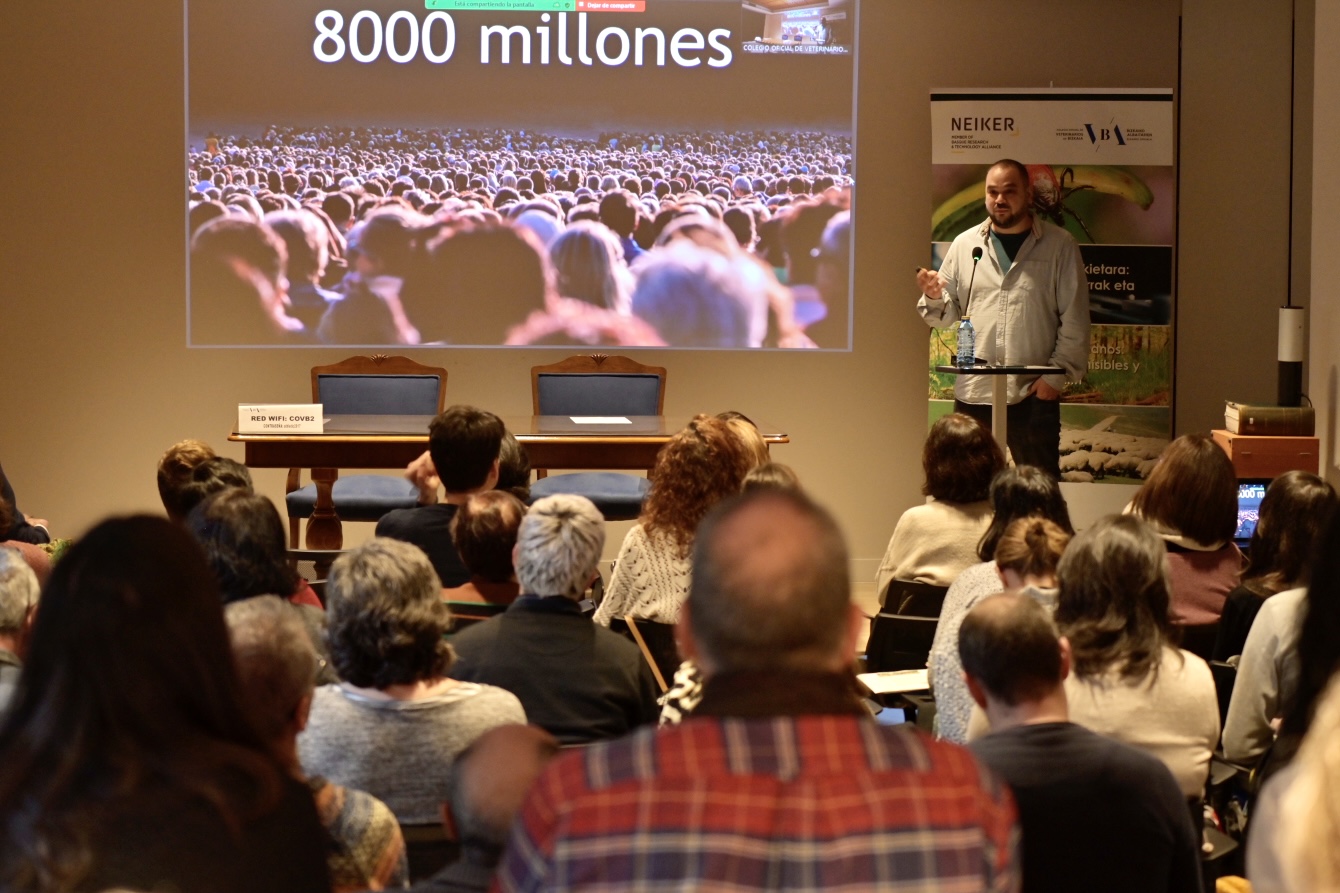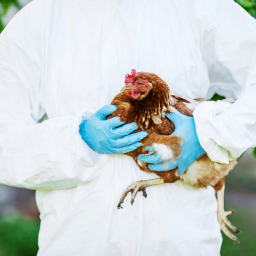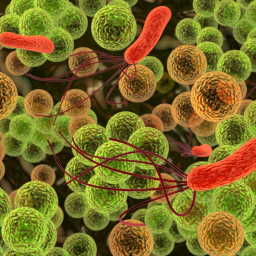NEW
The link between human and animal health, discussed at a conference organized by NEIKER
29 November 2022The link between human and animal health: a debate
- NEIKER technology centre has organised the conference “De animales a humanos: enfermedades transmisibles y One Health” (From animals to humans: transmissible diseases and One Health) this morning in Bilbao, in collaboration with the Official Association of Veterinarians of Bizkaia
- The event unlocked some of the key points to the One Health concept, a comprehensive global perspective for understanding the interdependence between animal and human health, and their link to the ecosystems they belong to.
Human beings and animals have a very close relationship: we share space, food and even diseases. For this reason, protecting biodiversity while maintaining a healthy, functional ecosystem has a positive impact on our health. Starting with this premise, in early 2000 a term was created to define this concept: One Health. This is a term that has been gaining significance in recent years due to the changes that have taken place in interactions between people, animals, plants and the environment.
Factors such as the growth of the human population and close contact with wild and domestic animals have facilitated the propagation of some diseases of animal origin, also known as zoonosis. These diseases are transmitted naturally between vertebrate animals and humans, or vice versa, either directly or through foods or vector arthropods such as mosquitoes, sandflies or ticks, capable of transmitting infections in an ever more interconnected world.
In an attempt to unravel the complexity of this concept, NEIKER technology centre, member of the Basque Research and Technology Alliance (BRTA), in collaboration with the Official Association of Veterinarians of Bizkaia, has organised the conference “De animales a humanos: enfermedades transmisibles y One Health” (From animals to humans: transmissible diseases and One Health) which took place this morning at the headquarters of the Official Association of Veterinarians of Bizkaia in Bilbao.
The event attracted numerous professionals from the field of human and animal health, experts in livestock farming, public health and epidemiology from different administrations, as well as researchers from different academic institutions and research centres such as the University of the Basque Country UPV-EHU.
The conference covered different topics with the common thread of the public health challenge that zoonosis and antimicrobial-resistant bacteria entail, because, as Joseba Garrido, head of the NEIKER’s Animal Health Department, states “they are essential to fully understand human, animal and environmental health problems and interiorise the need for a global view of this concept”. Similarly, during their talks, the various experts participating in the event provided an in-depth analysis of the results of their research into animal and human health.
Eight presentations for ‘One Health’
The conference began just after 9:00 am with a speech by Rosa María Estévez Reboredo, head of microbiological information systems and supervisor of the zoonosis unit within the Epidemiological Surveillance Analysis Area of the Epidemiology National Centre of the Carlos III Health Institute (ISCIII). During her presentation, entitled “Las zoonosis: un gran desafío para la salud pública”, (Zoonosis: a public health challenge) Estévez explained to the audience the importance of zoonosis from a public health perspective and mentioned the diseases with the greatest impact and that pose the biggest threat to human health both nationally and worldwide.
In the second talk, “La relación entre la biodiversidad y las zoonosis en un contexto de cambio global” (The relationship between biodiversity and zoonosis in a context of overall change), Aitor Cevidanes, researcher for NEIKER’s Animal Health Department, spoke about the most determining factors in zoonosis transmission related to wildlife diversity. To do so, he presented some examples of research in our region.
Afterwards, Ana L. García Pérez, researcher for NEIKER’s Animal Health Department, gave her viewpoint on the impact of Q fever and the risk factors for the emergence of outbreaks. Her talk covered the general aspects of Q fever, and the interdisciplinary working methods used in the Basque Country to tackle outbreaks, to find the source of the contagion.
The final talk of the first part of the session was by Marta Barral, researcher from NEIKER’s Animal Health Department. In her presentation, “Influenza aviar de alta patogenicidad” (Highly pathogenic avian influenza), she broke down the current situation, both worldwide and, more specifically, in the Basque Country, where in the last year a high number of wild birds have been found to be affected.
After the break, the first block on antimicrobial resistance as divided into two talks, the first by Ana Hurtado, researcher from NEIKER’s Animal Health Department, entitled “Resistencias a los antimicrobianos en ganadería” (Antimicrobial resistance agents in livestock farming) in which she provided a picture of the situation in this field and presented action that is being taken to combat the problem within livestock farming.
Later in the same block Miriam Alkorta, head of the gastrointestinal infection and parasitology department of Hospital Universitario de Donostia, spoke about the main pathogens transmitted by foods such as Campylobacter and Salmonella, and the resistance linked to these infections in the clinical cases diagnosed at the hospital.
The conference ended with a block on diseases transmitted by vectors. In the first talk, “Artrópodos vectores de enfermedades de interés en salud humana y animal en la CAPV” (Arthropod vectors of diseases of interest in human and animal health in the Basque Country), the researcher from NEIKER’s Animal Health Department, Jesse Barandika, summarised the most interesting results obtained in the surveillance programmes for vector species such as mosquitoes and ticks, both invasive and native, undertaken in our region in the last decade.
The event was brought to a close by Miguel Angel Jiménez Clavero, researcher from the National Institute of Agricultural and Food Research and Technology (INIA-CSIC), leader of the research group on Emerging and Cross-border Diseases, Zoonosis section, and director of the Department of Infectious Diseases and Global Health at the same institute.
In his presentation entitled “Emergencia de zoonosis víricas en la Península Ibérica” (The viral zoonosis emergency in the Iberian Peninsula) set out some cases of this type of disease that have occurred in recent years in the Peninsula, with special emphasis on the studies carried out on outbreaks of the West Nile Virus and the cases of Crimean-Congo haemorrhagic fever (CCHF). In addition, during his talk, he also highlighted the importance studying wild birds due to their role in the propagation of this type of zoonosis.
About NEIKER
A member of the Basque Research & Technology Alliance (BRTA), NEIKER is a technology centre specialising in creating innovative solutions for the agriculture/food and forestry sectors. NEIKER’s primary lines of work include driving agritech within the sector, boosting operations’ sustainability and competitiveness, finding alternatives to mitigate the effects of the climate crisis on agriculture and livestock farming, and driving the bioeconomy. It does all of this with a One Health approach: encompassing the relationship between the health of animals, the environment, and people. As an institution dependent on the Ministry of Economic Development and Infrastructure of the Basque government, NEIKER’s operations focus on providing answers and supporting the strategies designed by the Basque government for promotion, development and management in the Basque Country’s agriculture, livestock and forestry sector.






